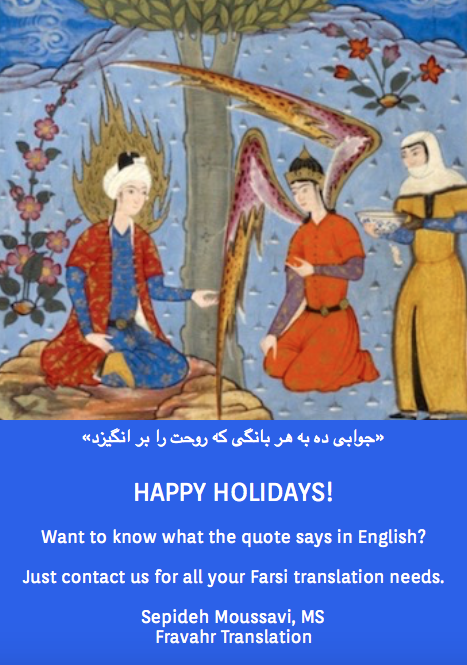A friend of mine recently graduated from one of the most prestigious universities in Tehran. She told me that while the university has a renowned and acclaimed faculty and a very high standard for achievement, most of their textbooks were difficult to read. She specifically mentioned a textbook in economics that was translated into Farsi (Persian) and didn’t make sense because it was highly technical and had been translated too literally.
This reminded me of my own frustration as a young student in Iran when studying translated textbooks. I often wonder how students can master subjects without access to textbooks that are as high-quality as their curriculum.
Several key questions come to mind. How can we avoid these pitfalls in translating different books, documents, and texts into Farsi? What are the right criteria for choosing a Farsi translator? How is the Farsi language different from other languages? Is there an organization that can evaluate and certify Farsi translators?
The difference between Farsi and Latin languages is not just that Farsi is written right to left and uses a different alphabet. When seeking a translator for a technical document or a literary text in Farsi, education and fluency in both languages may not suffice: A good translator also must have a deep understanding of both cultures and customs. The general rule is to find a translator who is a native speaker of Farsi, educated in both languages and has a deep understanding of both.
In the US, the American Translators Association (ATA) certifies interpreters and translators in most languages but not in Farsi. The lack of a trustworthy centralized authority has made it difficult to evaluate the competence of Farsi translators. Some automated translators convert words literally without conveying the meaning dictated by the culture. The internet has made more translation tools available, but again here, it’s impossible to assess the quality of the results.
Of course, if you only need to translate a simple text without specific idioms or technical jargon, you don’t need a college-educated linguist. However, what if you need someone who understands the legal terms and procedures related to a lease contract in Iran? In situations like these, it is essential to choose a translator who can convey the precise meaning without sacrificing intent and context.
A textbook in economics may not require a deep understanding of Iranian Islamic laws or the culturally charged idioms used in contemporary poetry. However, it still requires sensitivity and cultural perceptiveness to render precise translations that convey the exact meaning and intent of the author.
You can choose to settle for inexpensive and mediocre translation, but is this really where you want to set the bar?



 The American Translators Association (ATA), a well known international organization, offers a translator certification—a distinction that puts all translators, regardless of work status, in a better position to market themselves. For Farsi translators and interpreters in particular, the ATA certification is more than just a suffix.
The American Translators Association (ATA), a well known international organization, offers a translator certification—a distinction that puts all translators, regardless of work status, in a better position to market themselves. For Farsi translators and interpreters in particular, the ATA certification is more than just a suffix.







